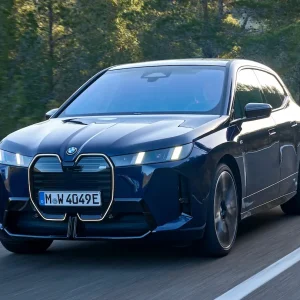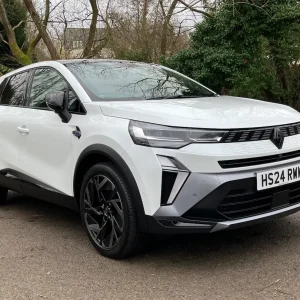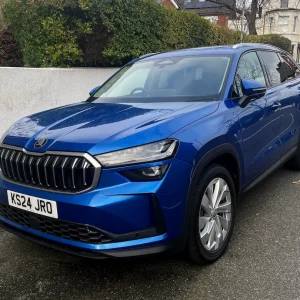Peugeot’s biggest product news of 2015 is this; the refreshed version of its big-selling 208 supermini.
As far as the brand is concerned, the six key points of the mid-life revision are new exterior and interior design, new body colours including textured paint, new personalisation offerings, new technology and connectivity and new petrol and diesel powertrains.
As far as the corporate sector is concerned, it’s that last point that’s most important, with the range now boasting new and improved engines that, in diesel form, take the 208 down to 79g/km, making the 75hp 1.6 BlueHDi model the most efficient diesel engine in the world, according to the brand, when it follows the rest of the range by arriving in September. Apart from plug-in models, only Toyota’s Yaris hybrid can beat it at 75g/km.
Also new to the range is a 110hp three-cylinder 1.2 petrol engine, which the firm feels will be one of the three most popular, along with the new 79g/km unit and the 82hp 1.2 petrol.
Emitting 103g/km, the new 110hp petrol is more efficient than all its key rivals bar the 100hp Ford Fiesta Ecoboost at 99g/km, and Peugeot is also claiming best in class status for the 104g/km EAT6 automatic version, though the £1000 extra cost and slightly juddery creep sensation count against a gearbox that is nonetheless massively improved over the old jerky robotised manual version it replaced.
The small steering wheel is pleasant in feel, and though the gear lever is set a little low, it offers a good quality of shift. Ride quality is also good.
But the manual is the more sensible cost per mile option and is a refined, powerful and flexible unit, giving the 208 equal ability on long runs as twisty ones.
The looks of the three-year old 208 have been enhanced to give it more of a macho stance, with nefront bumper, grille, headlamps and tail lights, while the interior gets a full-grain leather steering wheel from Active trim upwards, plus new dashboard treatment.
The Mirrorlink system that replicates an Android phone onto the seven-inch touchscreen that’s standard on all bar the most basic Access A/C trim level is standard chk, and Peuegot will be adding the Apple version – Carplay – by the end of the year, along with an increasing number of apps including navigation and music streaming via the Peugeot Connected Apps portal.
Safety technology is also improved, at least in as much as the Active City Brake system that will help the car avoid an accident at under 19mph is a £250 option on most of the range. The company is though running a launch offer until at least September, where the system is added free of charge, along with reversing camera, and parking aid on Active spec or satnav on Allure.
As a whole-life cost proposition, the 208’s biggest problem is a higher P11D than its main competitors. Certainly in this Allure spec that’s one above the core fleet Active and Access A/C models. It’s only a few hundred pounds higher than the Renault Clio or Ford Fiesta, while the Vauxhall Corsa is cheaper than all of the above, but combined with a residual value that’s a few percentage points off its rivals, it means the 208 is almost a penny per mile behind its key competitors.
But it’s a slight improvement on what was already a well-respected and above-average car in a segment full of very good alternatives
Peugeot 208 1.2 PureTech 110 Allure 5dr |
| Model price range £11,640-£17,732 |
| Residual value 30.1% |
| Depreciation £11,125 |
| Fuel £4946 |
| Service, maintenance and repair £1659 |
| Vehicle Excise Duty £40 |
| National Insurance £1129 |
| Cost per mile 38.3p |
| Fuel consumption 62.8mpg |
| CO2 (BIK band) 103g/km (15%) |
| BIK 20/40% per month £40/£80 |
| Warranty 3yrs/60,000mls |
| Boot space (min/max) 311/1152 litres |
| Engine size/power 1199cc/110hp |





